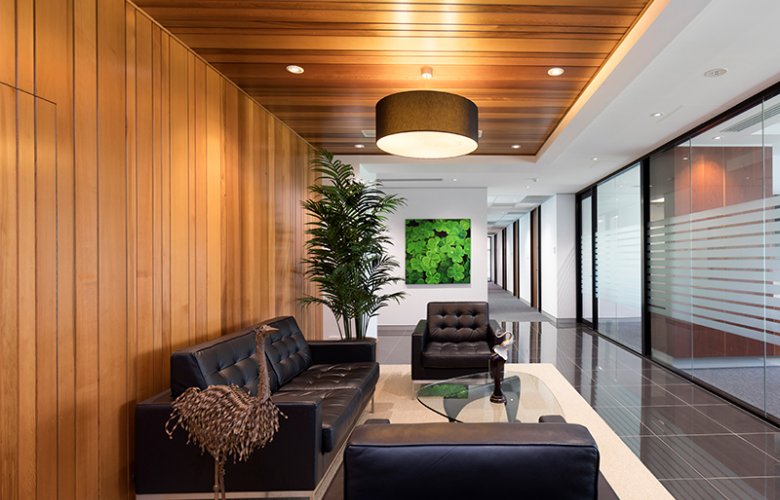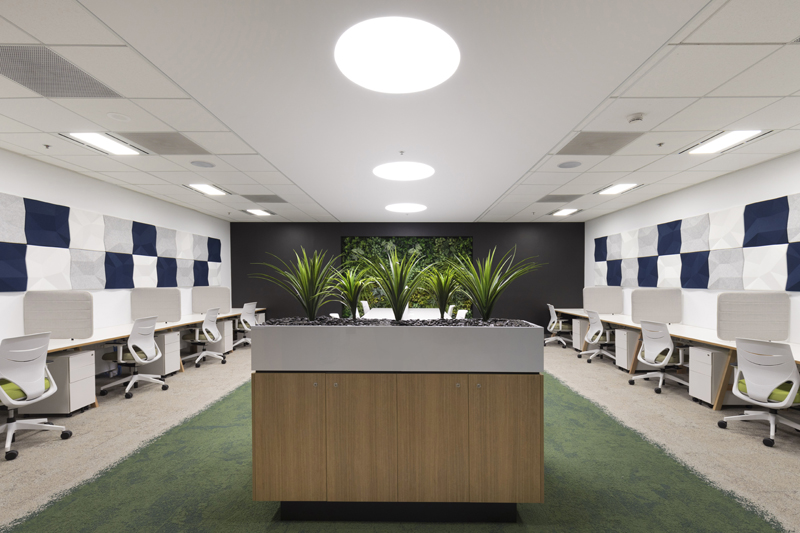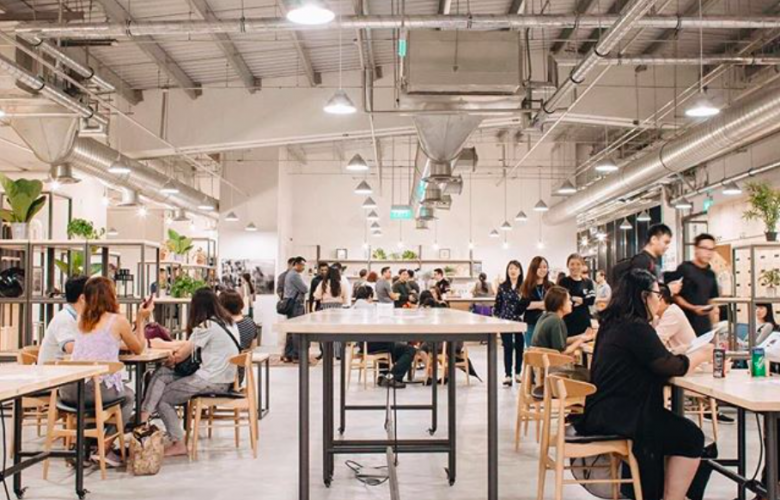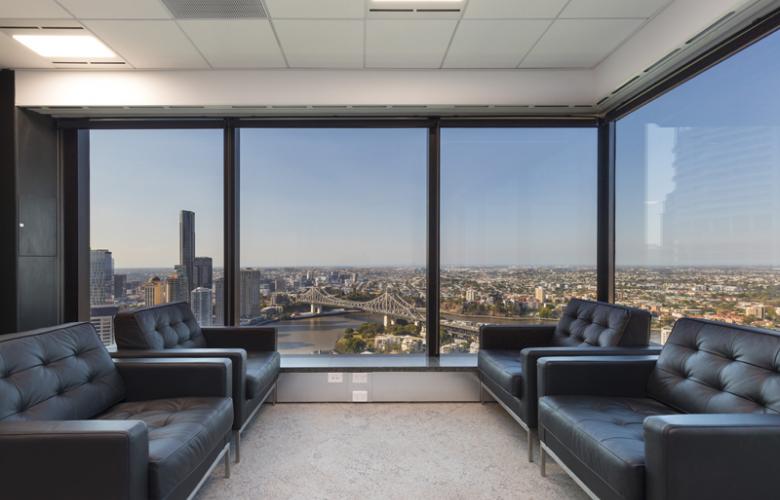JLL's latest report Spotting the Opportunities: Flexible Space in Asia Pacific shows that coworking and serviced offices in the region have grown by 150% in the last three years.
At a glance - Spotting the Opportunities: Flexible Space in Asia Pacific Report
- Asia Pacific region's stock of flexible floor space is growing at 35.7% per year, compared to 25.7% in the US and 21.6% in Europe.
- The number of major flexible space operators has doubled and available floor space has increased by 150% between 2014 and 2017.
- By 2030, flexible workspaces could comprise 30% of corporate commercial property portfolios worldwide.
According to new research JLL reports the demand for flexible offices, including coworking spaces and serviced offices, is growing faster in Asia Pacific than anywhere else in the world. The region's stock of flexible floor space is growing at 35.7% per year compared to 25.7% in the US and 21.6% in Europe.
The JLL Report, which looks at major coworking and serviced office operators in 12 Asia Pacific markets, reveals that the number of major flexible space operators has doubled, while flexible floor space has increased by 150% between 2014 and 2017.
"By 2030, flexible workspaces could comprise 30% of corporate commercial property portfolios worldwide," says Jeremy Sheldon, Managing Director, Markets & Integrated Portfolio Services, JLL Asia Pacific. "Although corporate adoption is still in its early days, there are certain factors that will continue to make this region a hotspot for coworking growth."

Corporate House receptionist space. Supplied: Corporate House
A key driver, says the report, is that governments are encouraging entrepreneurship to offset the slow growth in traditional industries such as manufacturing, and are offering financial resources and backing for small companies, many of whom locate in coworking-style spaces.
For example, in Singapore, the government has supported the development of flexible locations such as the JTC LaunchPad, which is home to a number of tech start-ups. Similarly, the New South Wales government supported the development of Sydney Startup Hub, a 17,000sq.m. tech zone catering to aspiring entrepreneurs. Meanwhile, reforms introduced by the Japanese government to improve work-life balance and productivity are also pushing domestic companies to explore more flexible ways of working.
The Real Estate Conversation recently reported on Corporate House, a flexible workspace solution offered across Queensland, Australia. The company provides the necessary facilities and amenities to cater to any and all business needs, even for a small start-up. With boardrooms, receptionists, kitchens, and fully-furnished office spaces, Corporate House offers an affordable and communal solution.

Yusuf Oner, General Manager Corporate House. Supplied: Corporate House
General Manager for Corporate House, Yusuf Oner, says flexible workspaces are becoming increasingly popular as businesses become more mobile. "People are working in a more mobile way these days, which means that requiring a 'fixed' office in a fixed location is a bit too constrictive."
The JLL Report also identifies plug-and-play simplicity as a factor in the growth in corporate demand, particularly for larget companies. The ability to move in and out of an office at short notice, and avoid complicated contract negotiations and fit-out work is a convenient option for many occupiers.
At the same time, businesses are looking to encourage collaboration among employees and are using shared workspaces as a way to foster innovation through exposure to new ideas and ways of working.
Stephen Wyatt, Country Head of JLL Vietnam said "Flexible space appeals not only to the younger generation's love of working in an open, well-designed space and an active workplace environment, but it also offers reduced costs in sharing fit-out expenses and making better use of resources. Flexible space offers a cheaper price and smaller, more flexible spaces for young companies compare to traditional office leasing."
"Some companies have even started their own internal coworking facilities, or have incorporated features of flexible space into existing offices to make the work environment more engaging. This helps to build a community feel and can be a differentiator when it comes to attracting and retaining young talent," says Susan Sutherland, Head of Corporate Solutions Research, JLL Asia Pacific.

Corporate House co-working space. Supplied: Corporate House.
Colliers International Office Insider May 2018 issue corroborates Sutherland saying that the term 'co-working' is a movement built on the principles of collaboration, transparency, and community; and inspired by traditional communal living spaces. These spaces aim to reimagine the way people interact on a day-to-day basis – driven by the current demand from young professionals and companies requiring more affordable working spaces.
However, there remain some barriers to the widespread use of flexible space. Large corporates place a high value on retaining their brand identity and culture as well as the need to protect data and secure their IT infrastructures.
“Cultural norms may also impact the adoption of flexible space in the region. With a more hierarchical corporate culture in Asia that is not always in sync with the casual environment of many coworking hubs, providers may need to adapt to cultural preferences to ensure a smoother transition to flexible working for some corporates,” explains Ms Sutherland.
Implications for real estate investors
In response to growing demand, JLL notes that landlords will continue to form joint ventures with coworking operators or create their own flexible space offerings to meet tenants’ needs. Meanwhile, developers are adapting to what could be a new standard in property development whereby flexible workspace will be an amenity as essential in a commercial building as food and beverage outlets or a gym.
“Given the competitive dynamic of this new sector, we are already seeing consolidation even among the biggest players. Looking ahead, we can expect convergence to continue growing, with serviced office operators developing coworking brands and coworking brands targeting the clients of serviced operators in the market,” concludes Ms Sutherland.
Click here to view Spotting the Opportunities: Flexible Space in Asia Pacific report.
For more information or to discuss the report email Susan Sutherland of JLL Asia Pacific via the contact details listed below.
Sources: JLL Asia Pacific, Colliers International Office Insider May 2018, The Real Estate Conversation.
Similar to this:
How will the infrastructure-focused Budget effect foreign investments in Australia's real estate industry?
Tokyo, New York and Los Angeles are world's largest real estate investment markets, CBRE research finds
Australia's $138 billion opportunity in Asia just got bigger says ANZ














